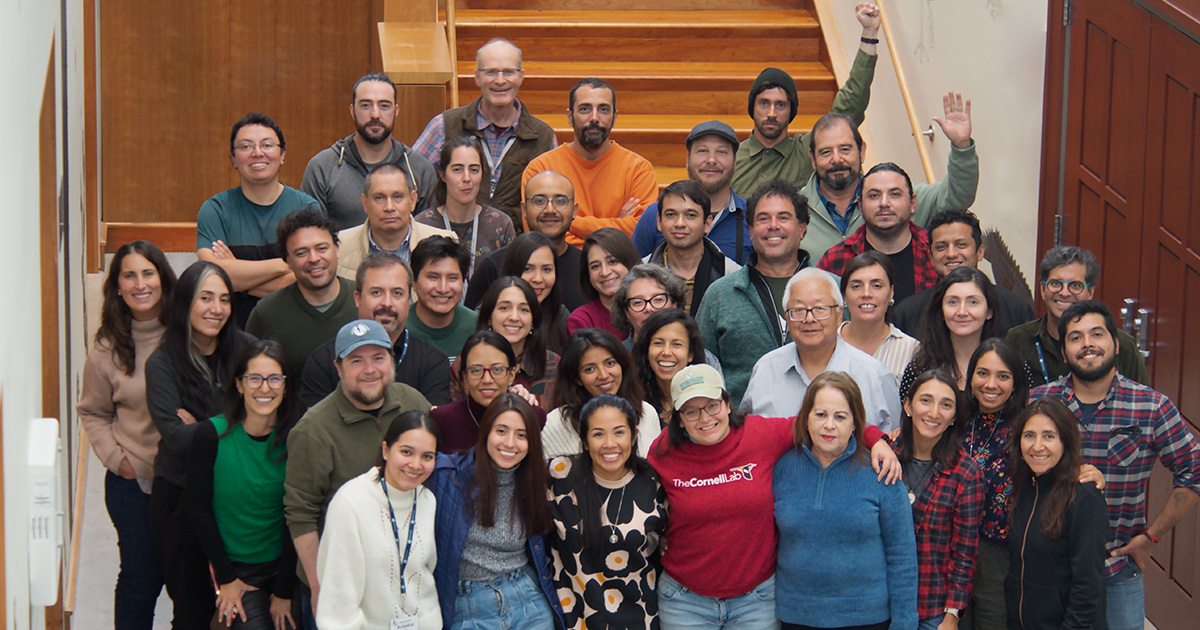The Coastal Solutions Summit of 2023: getting together for shorebird conservation in Latin America
This past February we hosted the first Coastal Solutions Summit in Ithaca, bringing together three cohorts of fellows, mentors and collaborators for 10 days of capacity building, exchange of ideas, new partnerships, and professional growth. The summit began with the onboarding retreat for the fellows of 2023, followed by the 2021 and 2022 cohorts joining in for an intense week of training on strategic topics ranging from shorebird conservation to coastal infrastructure and nature-based solutions, concluding with a brain storming session for the design of Coastal Solutions Phase 2. The days were full of activities, workshops, conversations, and important discussions on the many opportunities the Coastal Solutions Program brings to the Pacific coast of Latin America.
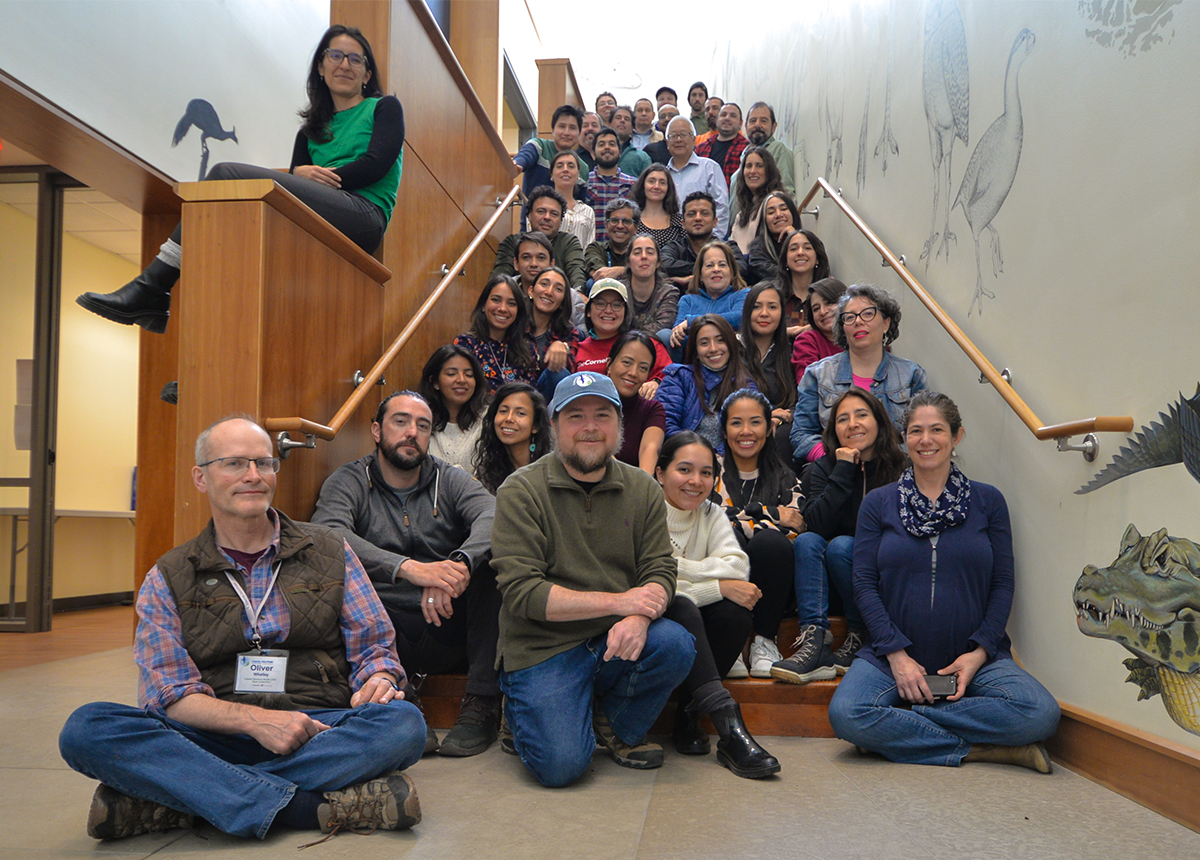
The first group to arrive was the 2023 Coastal Solutions cohort. All new to the Cornell Lab of Ornithology, our six newest fellows are Julia Salazar from Honduras, Ballantyne Puin from Colombia, Enrique Fornasini from Ecuador, Darwin García from Peru, and María Valladares and Daniela Ruz, both from Chile. They were joined by their mentors and collaborators: Isadora Angarita, Carlos Zarate, Paola Villalba, Oliver Whaley, María José Martínez and Camilo Navarro, respectively. During the first few days, they had the opportunity to meet and interact with each other, get to know the facilities and surroundings of the Cornell Lab of Ornithology, and receive strategic training for their projects. After a warm welcome from the Lab’s Executive Director Ian Owens, the group learnt more about the organization’s mission and vision, and the integral role that the CSF Program plays in this plan.
An initial component of the retreat was the feedback session of the new CSF projects. The fellows shared their initiatives with their peers and a group of experts to showcase the innovative solutions they will be implementing, adding to the growing impact along the Pacific Flyway. This was followed by a discussion with questions, comments, and recommendations from the audience, to help improve the work that the fellows will be leading over the next two years.
Key to our retreats are our speakers and instructors, and this event hosted leading experts in coastal conservation, public policy, shorebird ecology, nature-based solutions, citizen science, strategic alliances, fundraising and much more. During the first few days of the retreat, the 2023 cohort had the unique opportunity to interact with two shorebird specialists and senior fellows from the 2019 cohort: Richard Johnston from Colombia and Natalia Martínez from Argentina, to learn about shorebird identification, ecology, monitoring techniques, and conservation strategies. This was followed by a 2-day workshop on Effective Governance for Coastal Solutions from our friend and collaborator Diego Luna Quevedo, Senior Specialist in Policy and Governance at the Western Hemisphere Shorebird Reserve Network (WHSRN)/Manomet, to help the new cohort of fellows, mentors and collaborators develop strategic governance plans to achieve meaningful conservation outcomes in their projects. The participants also had the chance to learn from Viviana Ruiz-Gutiérrez, Co-Director of the Center for Avian Population Studies at the Lab and founder of the CSF Program. Viviana shared with the participants a presentation on the genesis, design and principles of the Program.
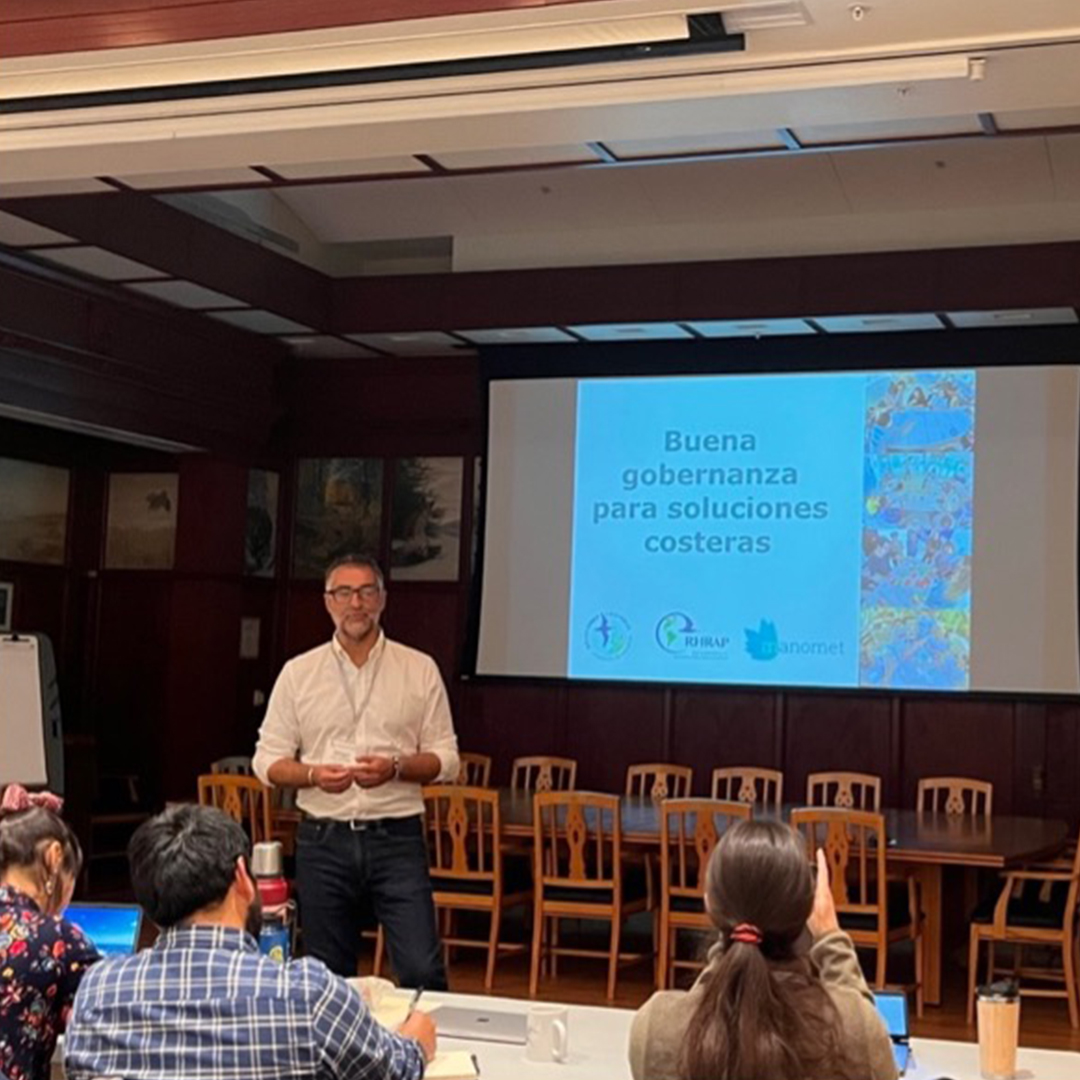
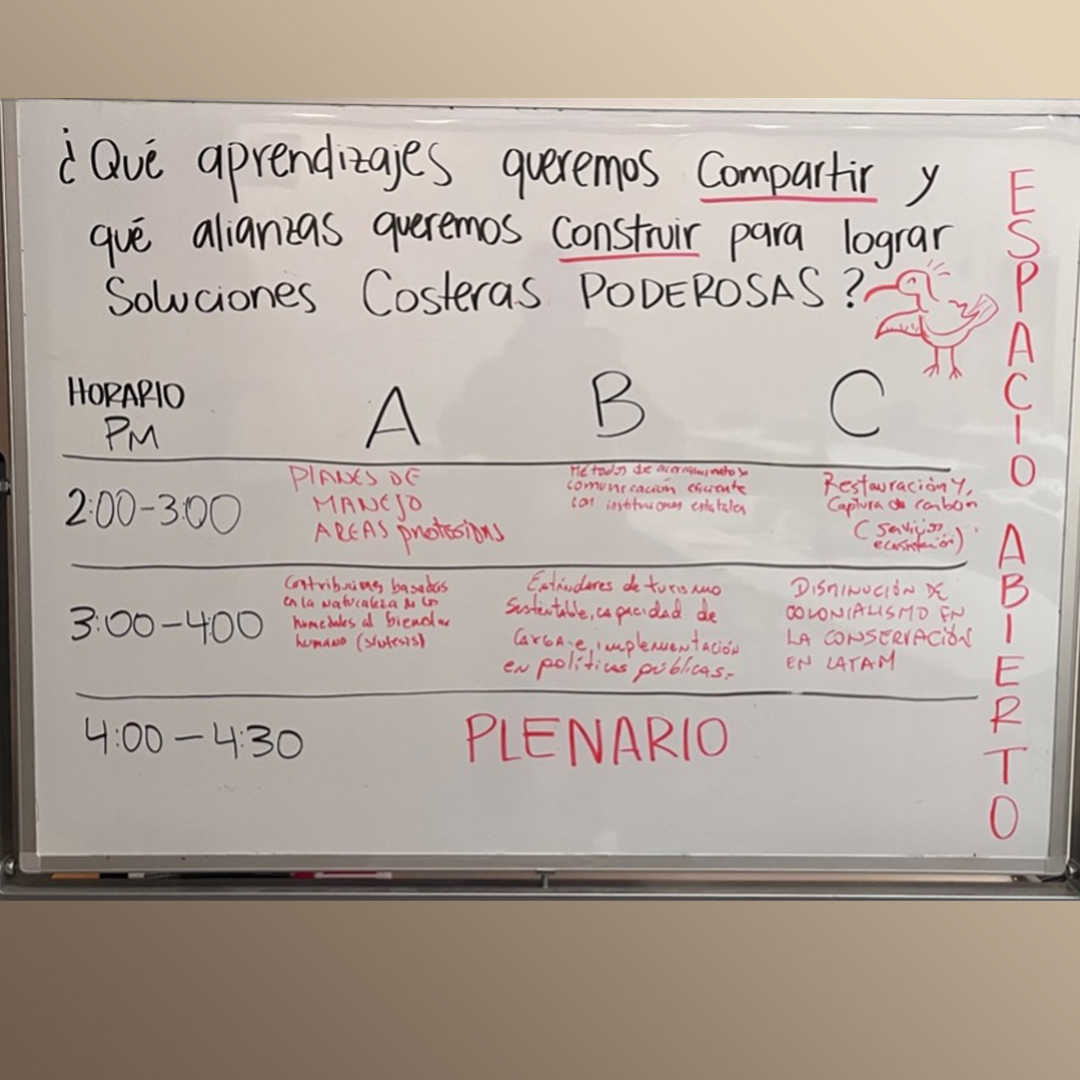
To finalize this first part of the summit, Varinia Sagastume, 2020 Fellow from Guatemala, facilitated an open discussion on how to best implement lessons learned and build partnerships, via a series of interactive activities to identify opportunities and consolidate the knowledge in the network. These events generated the space for new fellows to learn from a highly skilled set of professionals, as well as interact with peers from previous generations. Additionally, thanks to our valuable relationship with Zeiss, every year the incoming fellows receive a quality set of binoculars, to help them on their best path towards shorebird conservation.
The second week started with the arrival of the 2021 and 2022 fellows, mentors and collaborators. Now we had participants from Mexico, Costa Rica, and Panama too; as well as Jaime Chaves, in representation of Universidad San Francisco de Quito (USFQ), one of Cornell Hub’s partner institutions in Ecuador. Excited for the week ahead, the newest members of our group arrived in wintery weather to admire nature at Sapsucker Woods, and fall in love with the Lab’s Wall of Birds, a majestic piece of art dedicated to the evolution and diversity of birds. The group was welcomed by Cullen Hanks and Jay McGowan, Macaulay Library, Merlin and eBird experts, to learn about these platforms, their strategies for community engagement worldwide, and the potential uses of their data for conservation. After this general session, Orin Robinson and Andrew Stillman, part of the Conservation Science team at the Center for Avian Population Studies in the Lab, led by Viviana Ruiz-Gutierrez, hosted concurrent workshops to explain the use of eBird data to guide bird conservation projects, including the presentation of successful case studies in the U.S. and Latin America.
The following days, the participants were part of a series of sessions designed to enhance cross-sectoral collaborations for coastal conservation. This included a workshop on infrastructure financing for resiliency and conservation by John Foote, Professor of the Brooks School of Public Policy at Cornell and Board Member of the Lab, as well as a workshop on how to influence development to achieve coastal resiliency and adaptation in Latin America by Cristián Pérez-Navarro, Director of Global Nomad and member of the CSF Advisory Board.
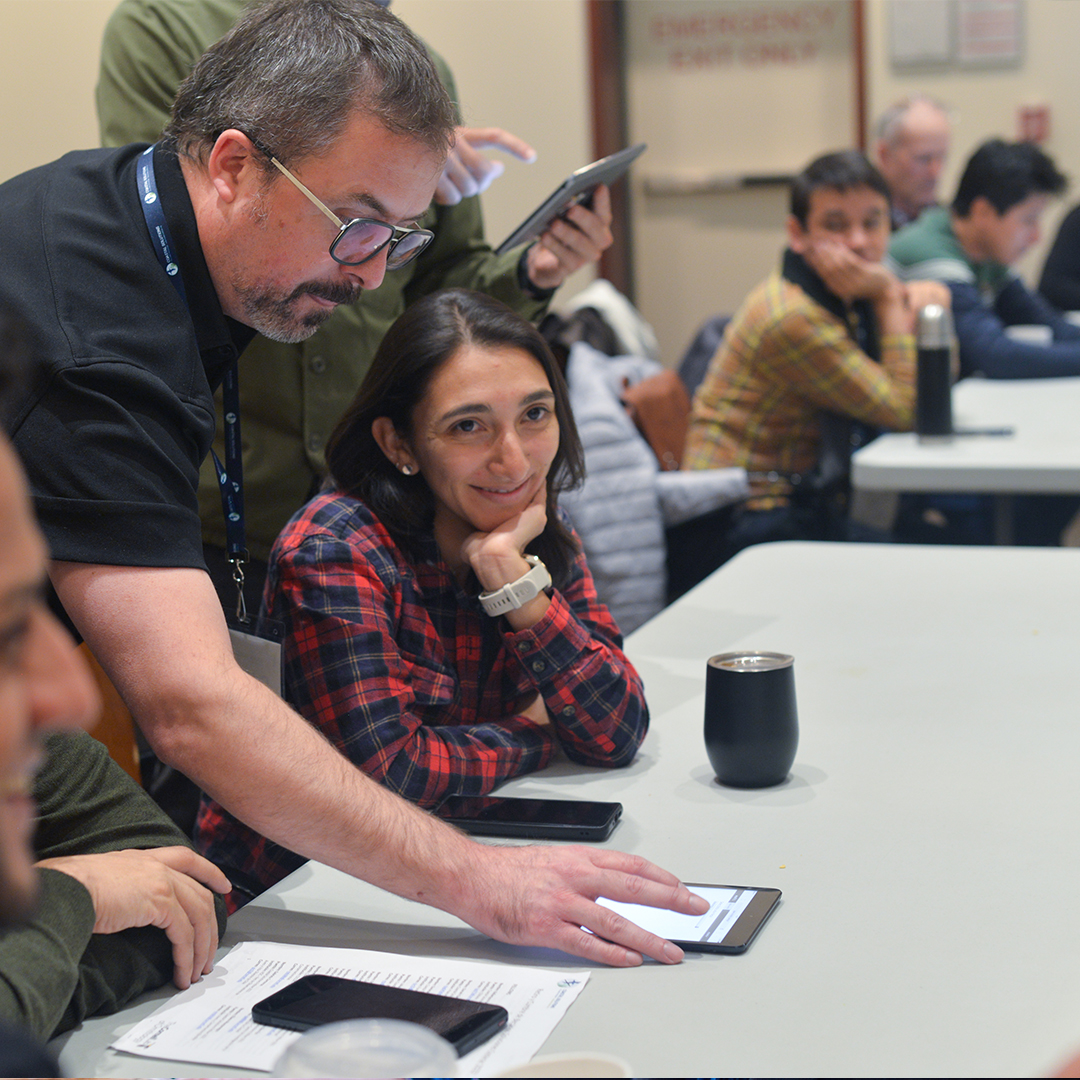
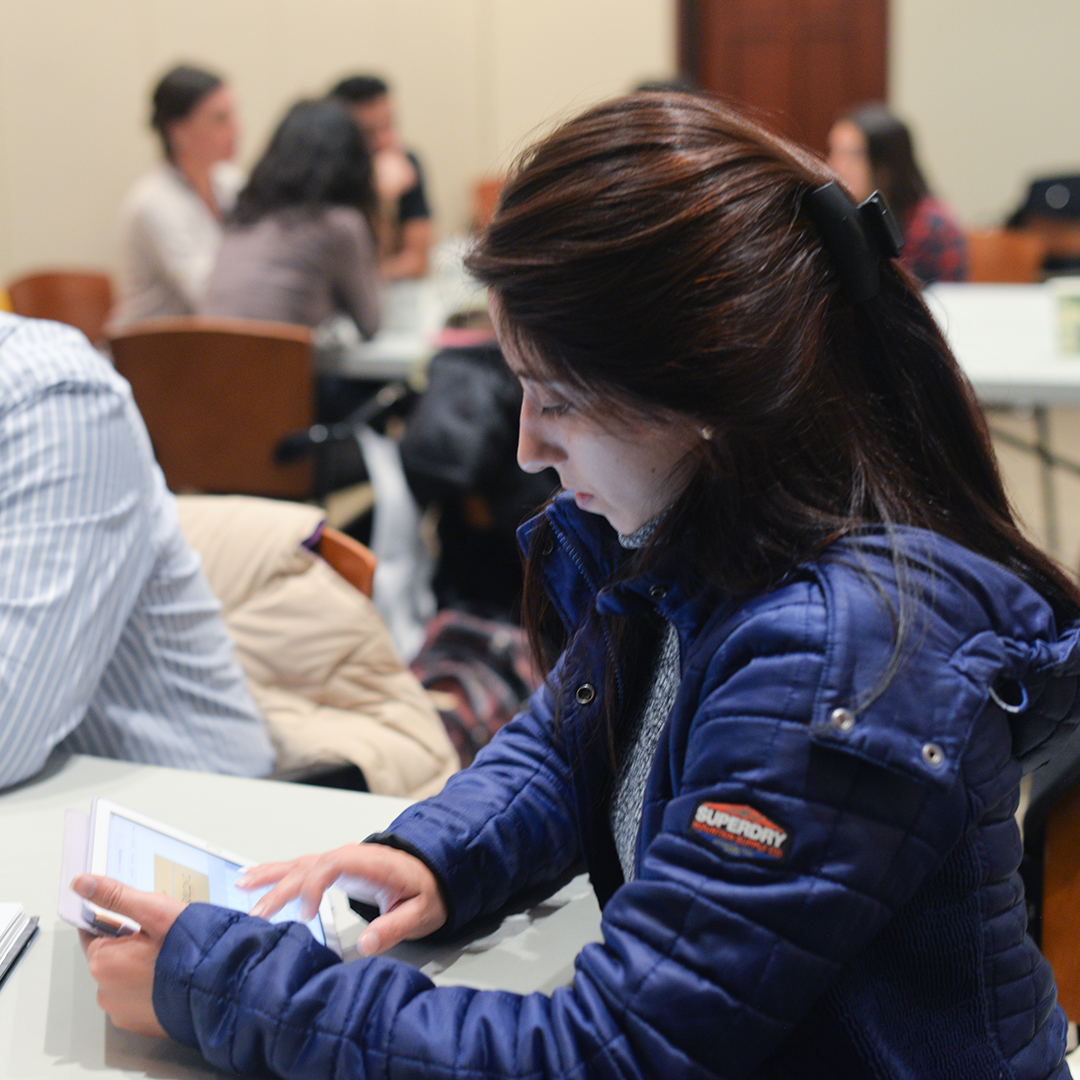
As part of this workshop, we had the opportunity to participate in Metropoly, a game-based simulation based on the Monopoly board game. Metropoly was developed by 2021 Fellow Ariadna Araúz with her mentor Cristián Pérez-Navarro, to help engage property developers in wetland conservation in Panama Bay through transferable development rights. This creation, already tested and very successful with its target group, was played among the participants, generating important lessons on the role of markets in coastal conservation and highlighting the many ways in which fellows have found to heighten the impact of their Coastal Solutions projects (read more about Metropoly here).
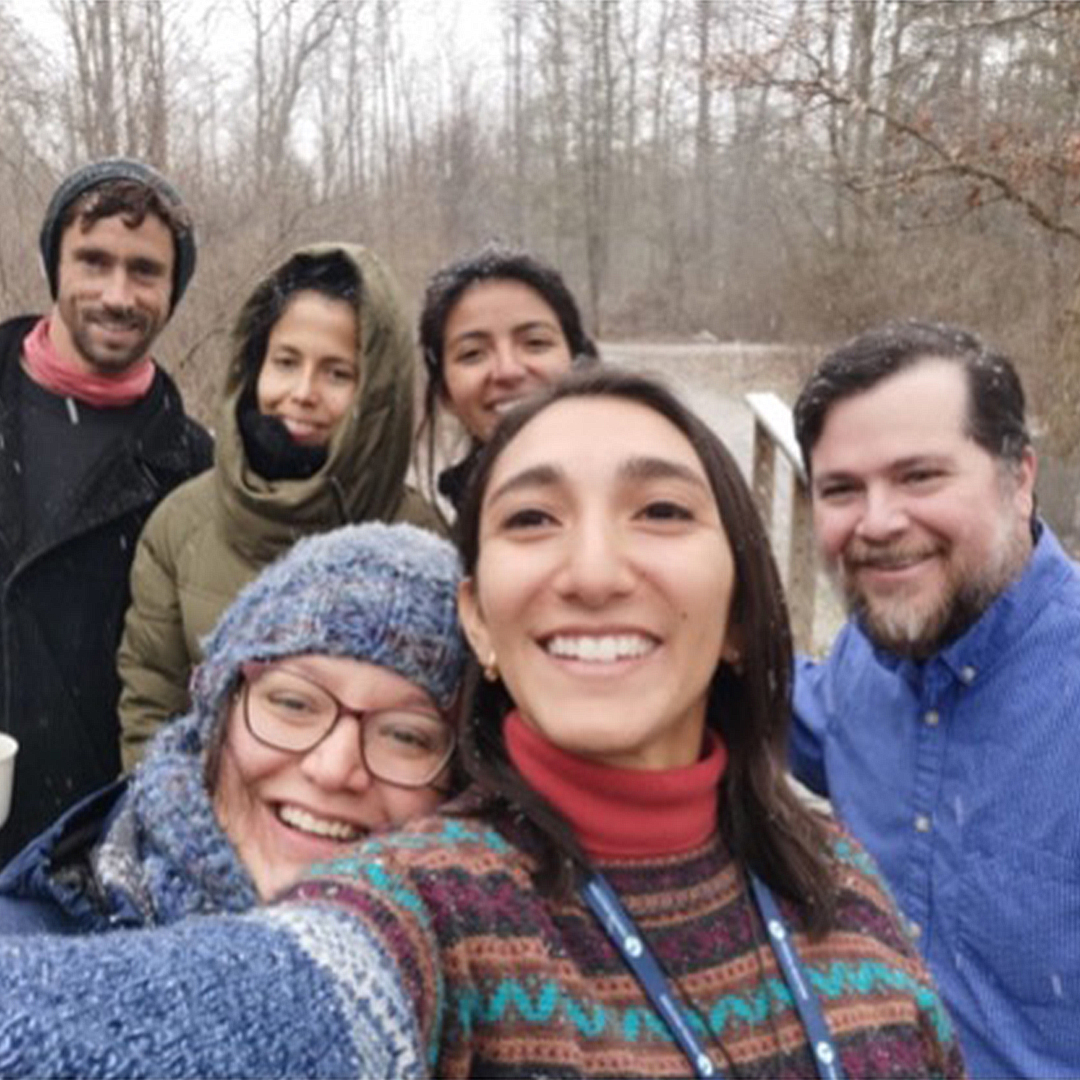
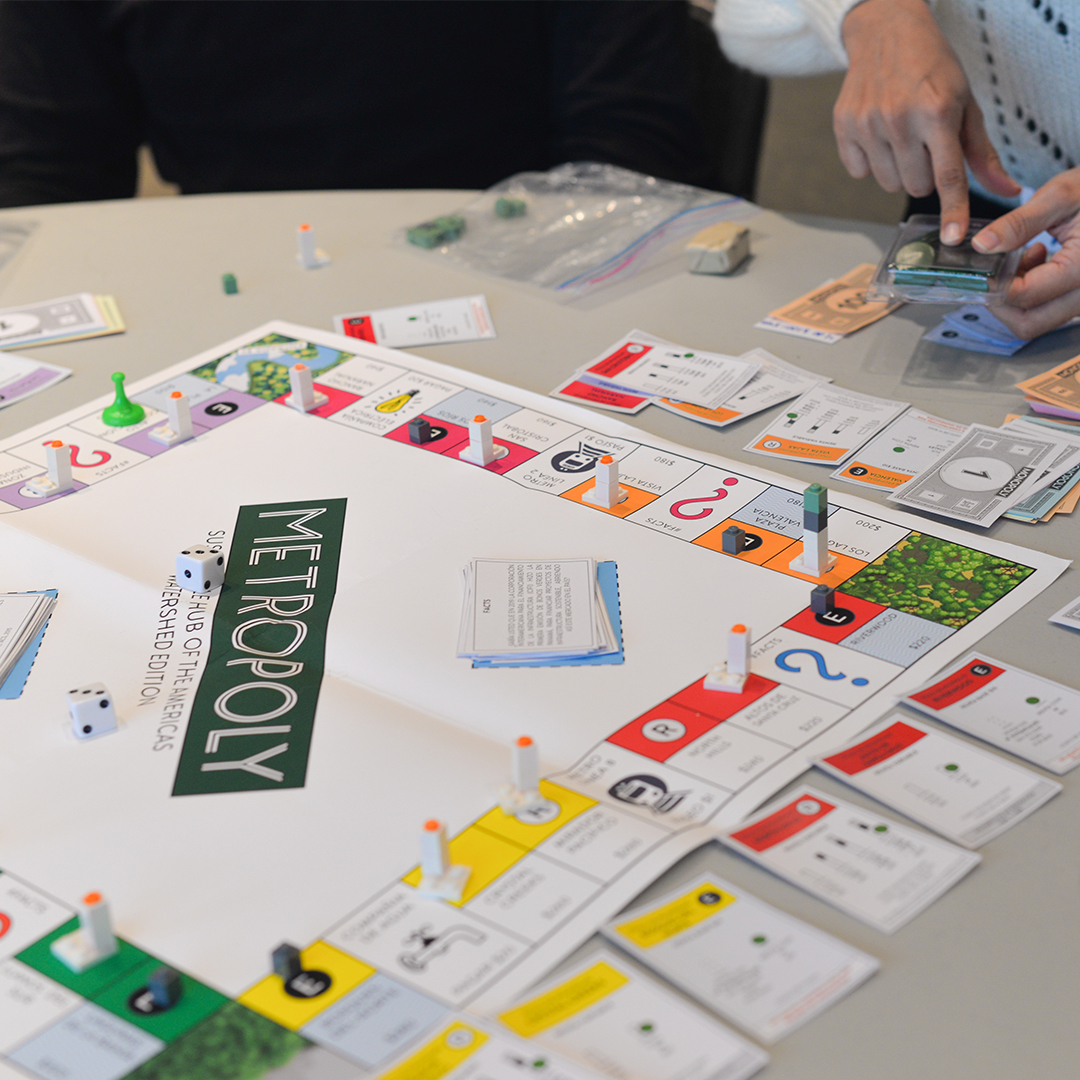
During the Summit we also had invited speakers on key topics for our fellows. This included Jim Chu from the International Programs at the U.S. Forest Service, presenting on the Copper River International Migratory Bird Initiative (CRIMBI), which for over 20 years has helped to advance shorebird conservation along the Pacific Flyway of the Americas. Guillermo Durán, GIS and Data Scientist at the Lab shared examples on the use of eBird data to guide conservation actions for shorebirds in Panama and in coffee plantations in Costa Rica. We also learned about the successful conservation history, the partnerships with the private sector, and the lessons learned at the Rio Cruces Wetland Center in Valdivia, Chile from the Center Director, Ignacio Rodríguez.
A critical element in the Program is the creation of capacities for finding the resources to advance coastal conservation. For this purpose, we invited Bramble Klipple, Director for Development and Philanthropy, and Mary Guthrie, Director of Major Gifts and Corporate Partnerships at the Lab to facilitate a workshop on the principles and strategies for successful fundraising in conservation. The workshop provided tools, approaches and lessons to help the participants advance their fundraising efforts to support the initiatives they are leading in the long-term. The session was completed with a presentation by Patrick Beary, Director of Strategic Partnerships at the Cornell Atkinson Center for Sustainability, on how to build meaningful relationships with the private sector to advance conservation and sustainability goals.
Additional to an intense week of invaluable seminars and lectures at the Lab, we co-hosted the Special Seminar “Scaling up Nature-based-Solutions in Latin America” together with the Cornell Department of Landscape Architecture, Cornell Global Development, the Mario Einaudi Center for International Studies, the Cornell Department of Civil & Environmental Engineering, the Atkinson Center for Sustainability, Adaptation Latin America, and the Inter-American Development Bank.
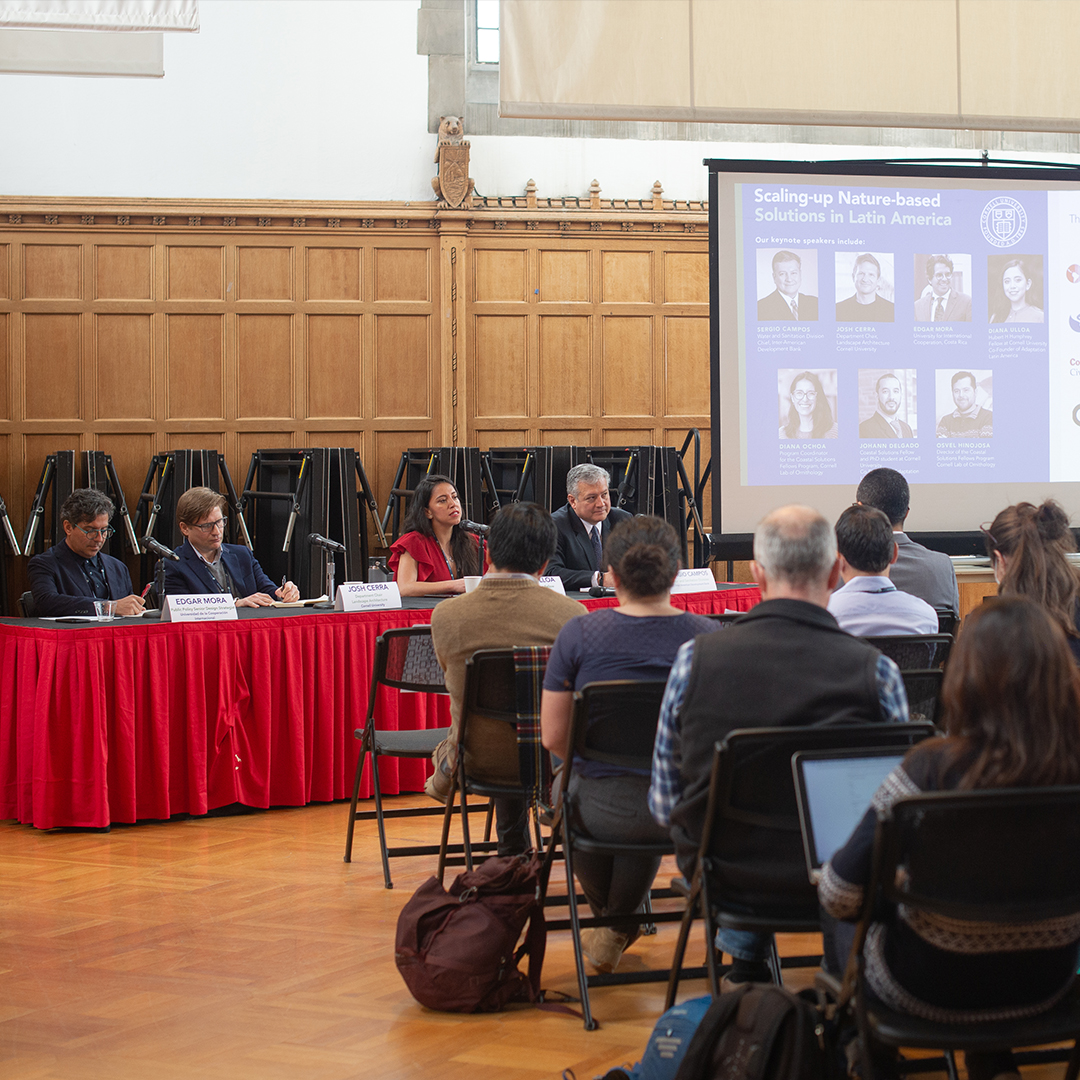
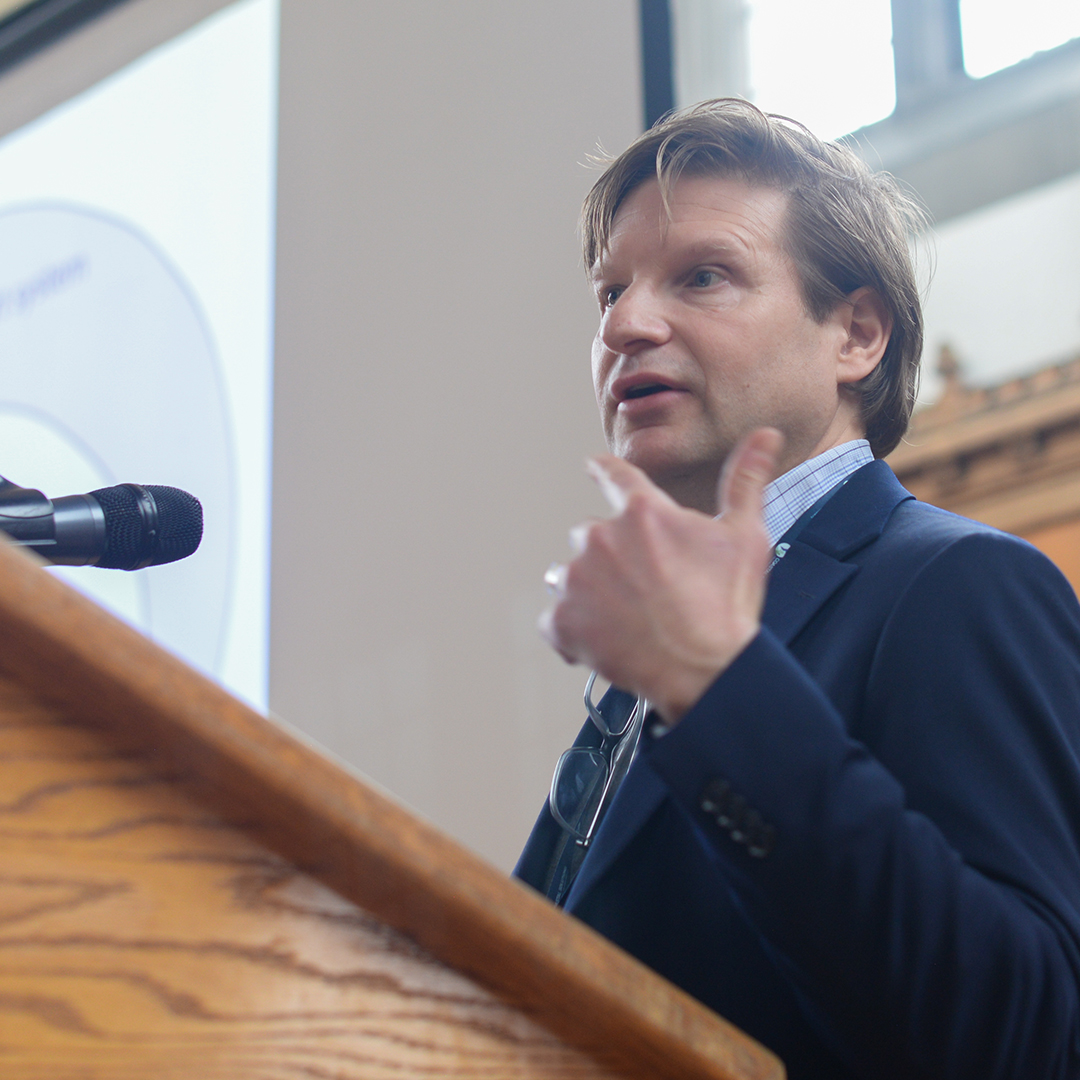
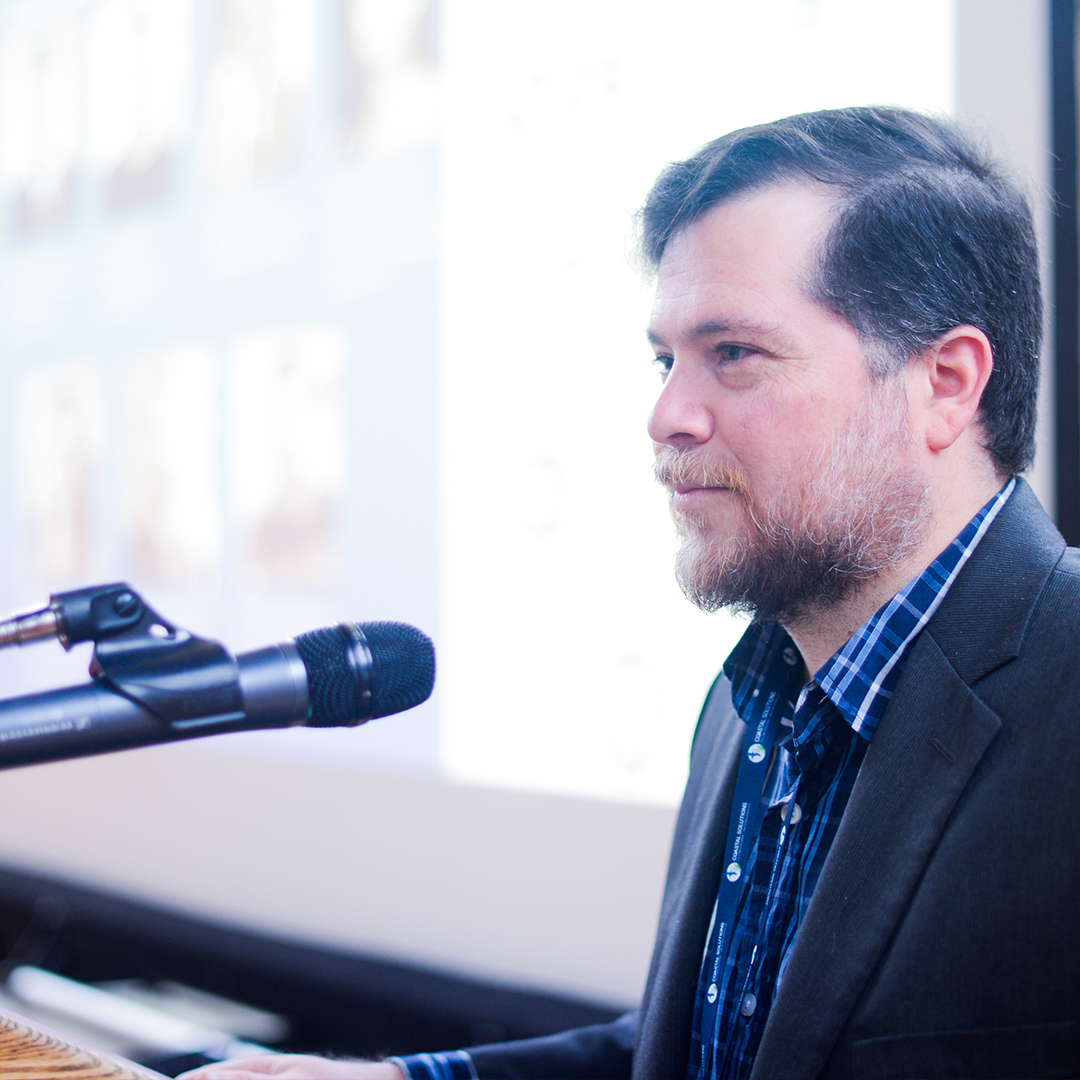
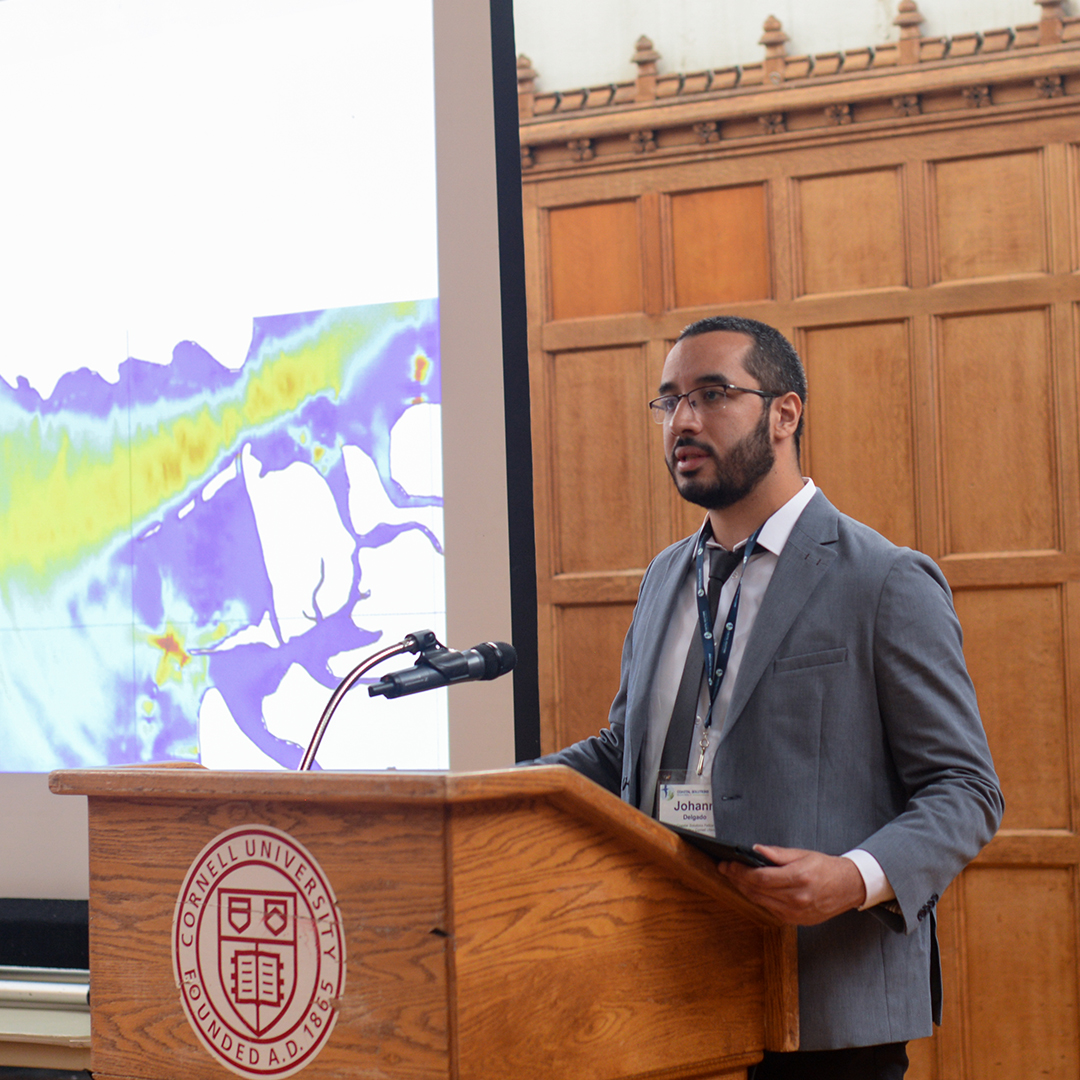
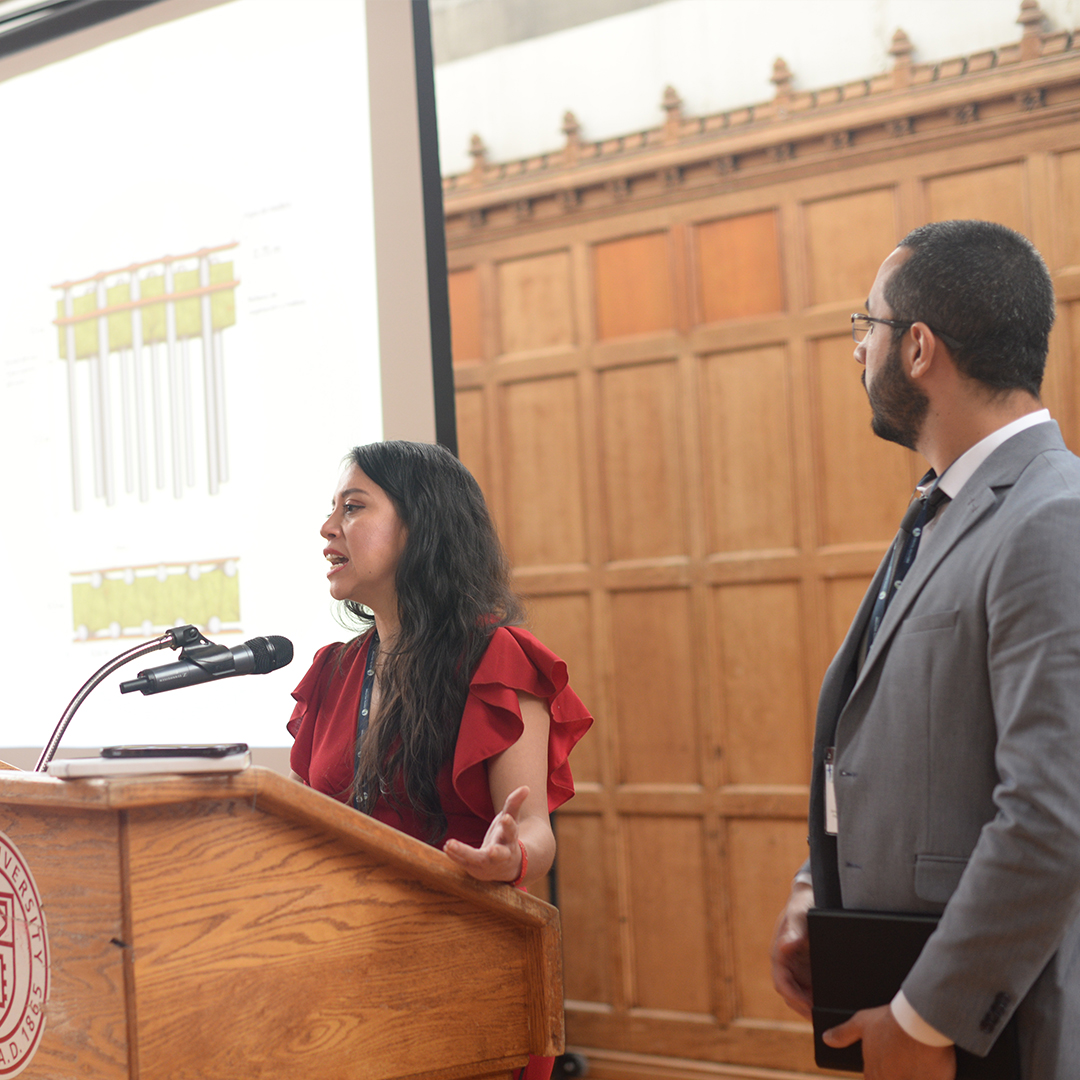
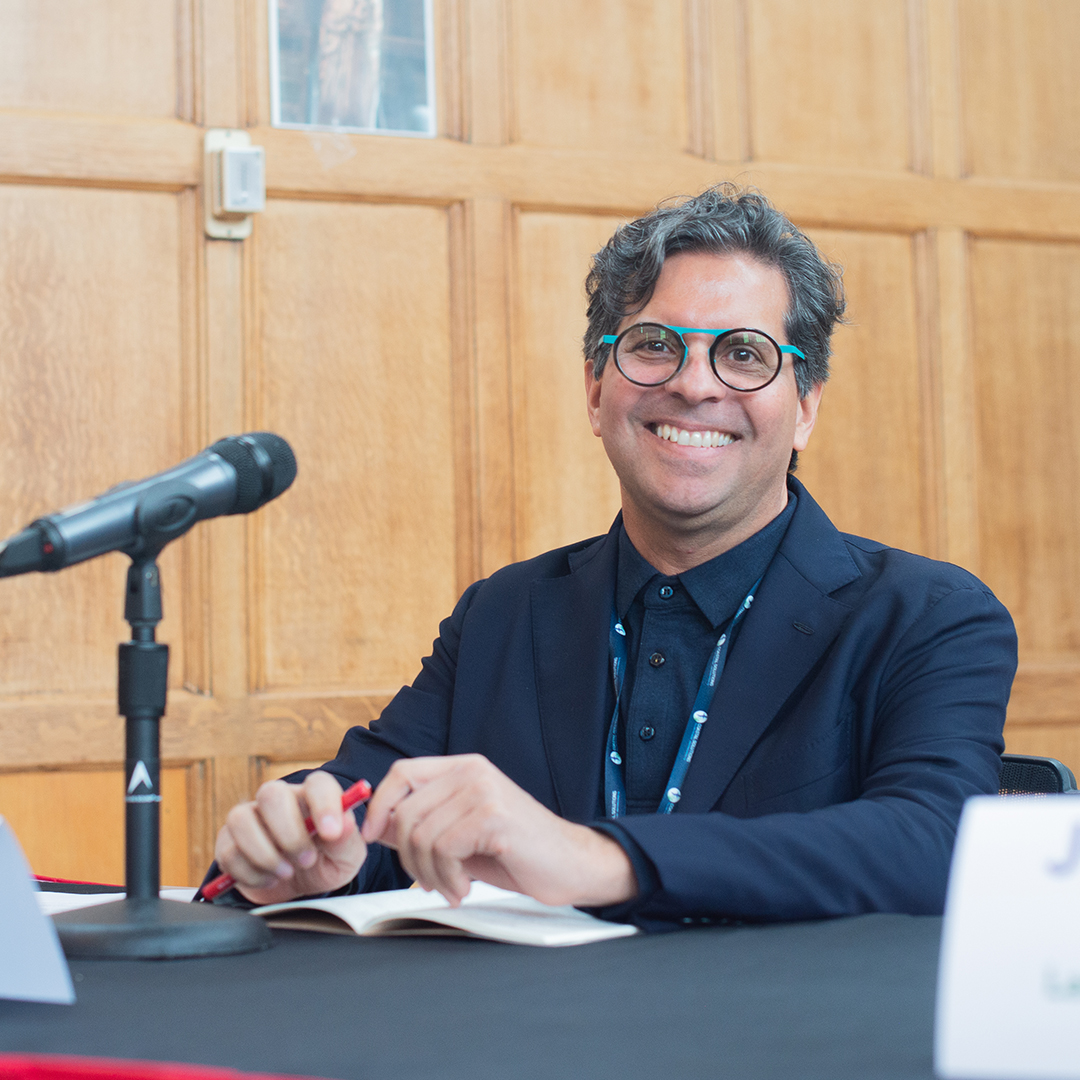
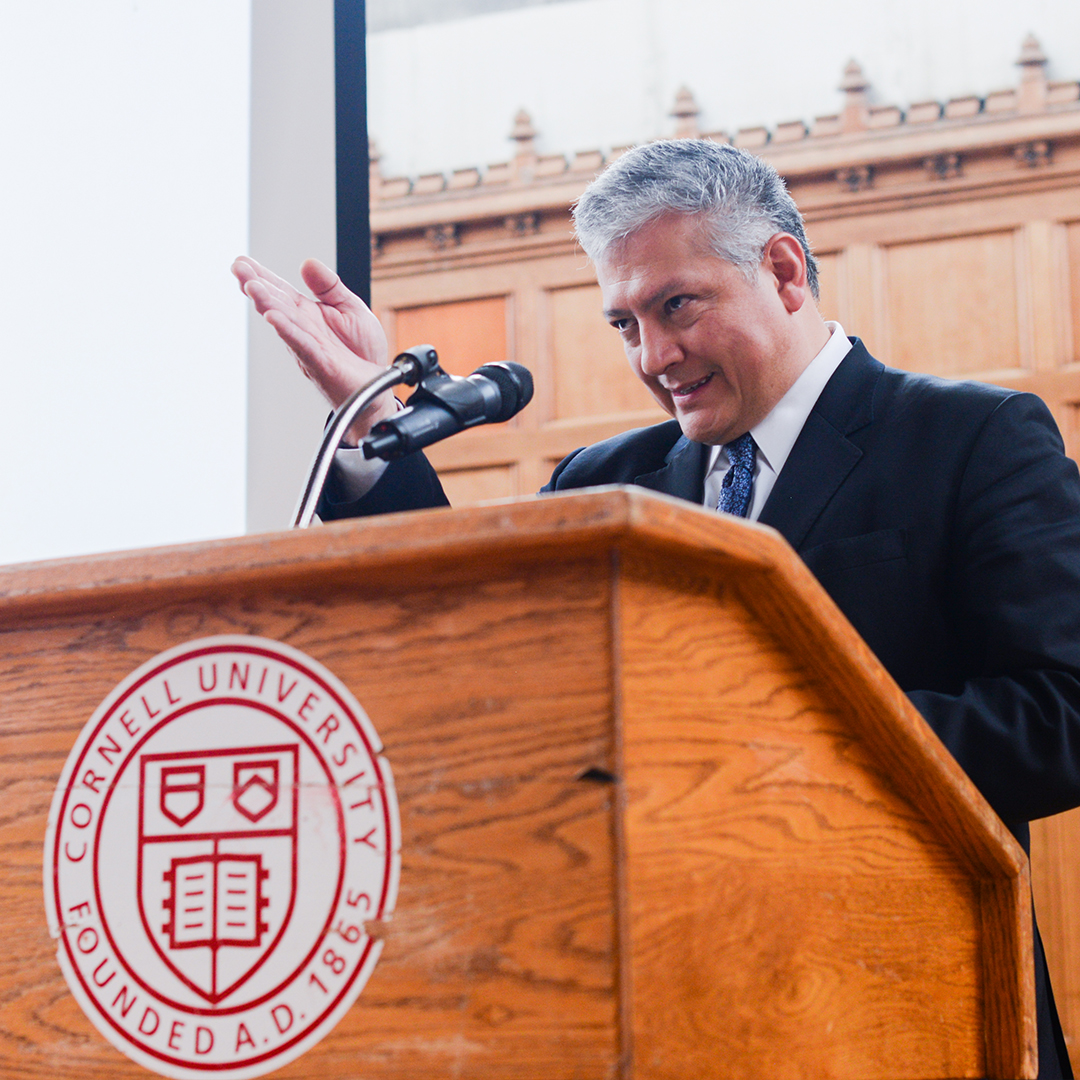
The goal of the seminar was to bring together Cornell faculty, scientists, students, international fellows, experts from Latin America, and finance specialists to find joint solutions for challenges on climate change, biodiversity conservation, water, infrastructure, and financing. Johann Delgado, Coastal Solutions Fellow of 2019 and PhD candidate at Cornell, together with Diana Ulloa, Cornell Humphrey’s Fellow, were instrumental in the design and organization of the event. Both were part of the panel of experts presenting during the seminar, along with Josh Cerra, Chair of the Landscape Architecture Department at Cornell and Edgar Mora Altamirano, former Mayor of Curridabat, Costa Rica, Director of the Center for Transformative Action at the University for International Cooperation, and mentor in the CSF Program. They were joined by Sergio Campos, Water and Sanitation Division Chief at the Inter-American Development Bank, as our keynote speaker.
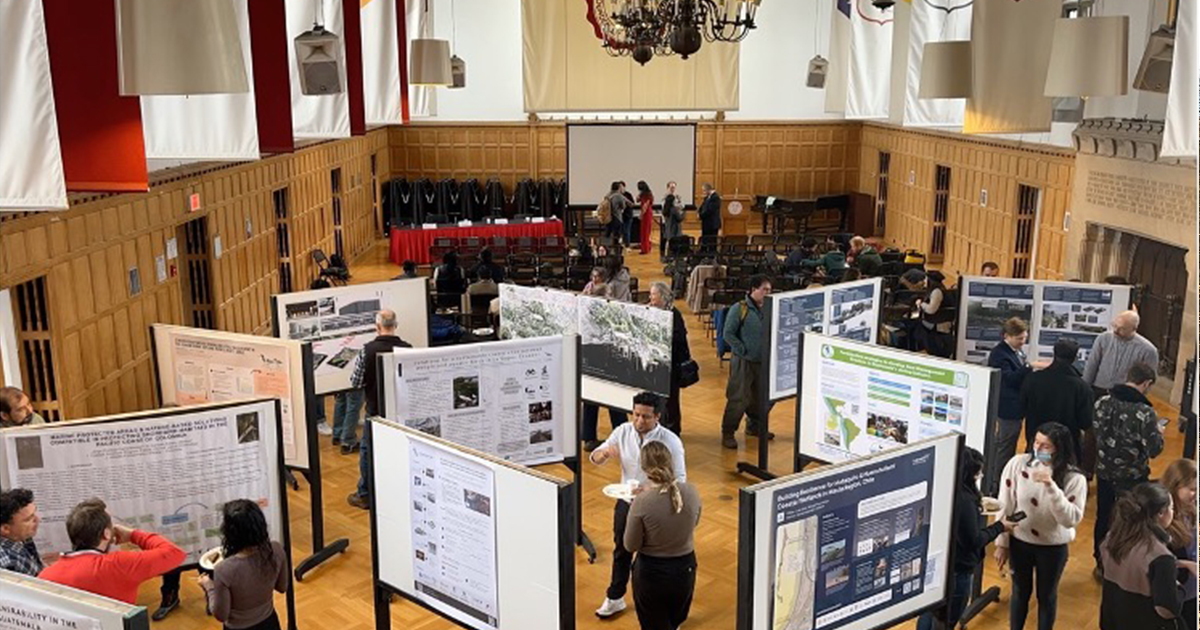
The presentations and discussion with the panel of experts was followed by a poster session, where the Coastal Solution Fellows, along with Cornell graduate students and researchers, had the opportunity to share the results of their projects with the Cornell community. You can see the full recording of this event here and you can review the presented posters here.
To end the week, the group finally had time to sight see and go birding. Half of the group enjoyed the beautiful sights around Ithaca, including a trip to Taughannock Falls State Park. Slightly frozen but cheerful, this group was able to experience winter first-hand, something rather rare for warm-blooded Latin Americans. Meanwhile, the other group, mostly composed by hardcore bird-watchers, made the most of the fantastic opportunity the heavy snow brought to take a trip an hour north of Ithaca in search of the ever elusive and incredibly well camouflaged Snowy Owl. After a few hours of driving and scouting the frozen grounds, they spotted their treasured lifer and returned as triumphant birders.
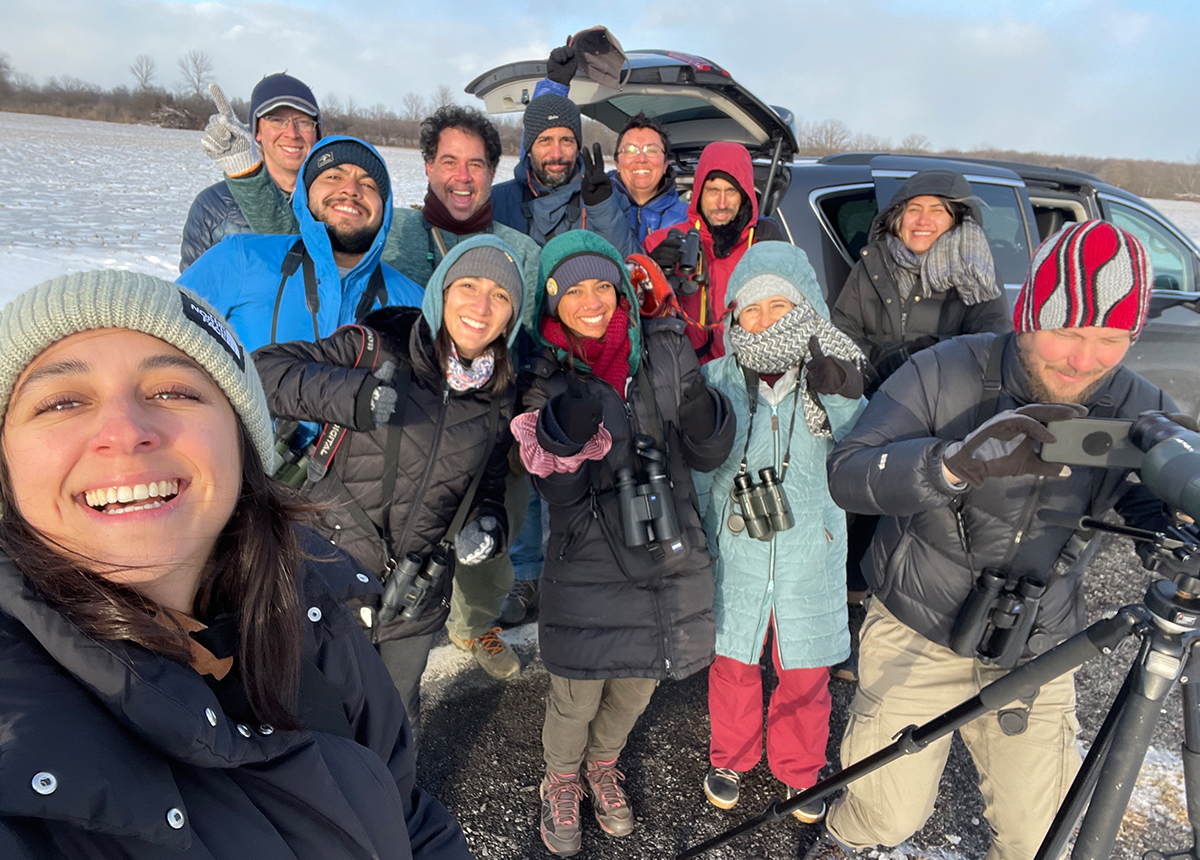
We are very grateful to be able to hold these events once again in person and help our ever-growing Coastal Solutions network connect with each other, strengthen relationships, and identify new opportunities. We are proud of the conservation outcomes that the Coastal Solutions Fellows are delivering along the Pacific Coast of Latin America, and every year we have the pleasure to welcome six more fellows to become part of the vision of bringing comprehensive solutions for shorebird conservation. We are excited to see how these bright minds become part of this future. Stay tuned to learn more about what is coming up in Phase 2 of the Coastal Solutions Fellows Program.
